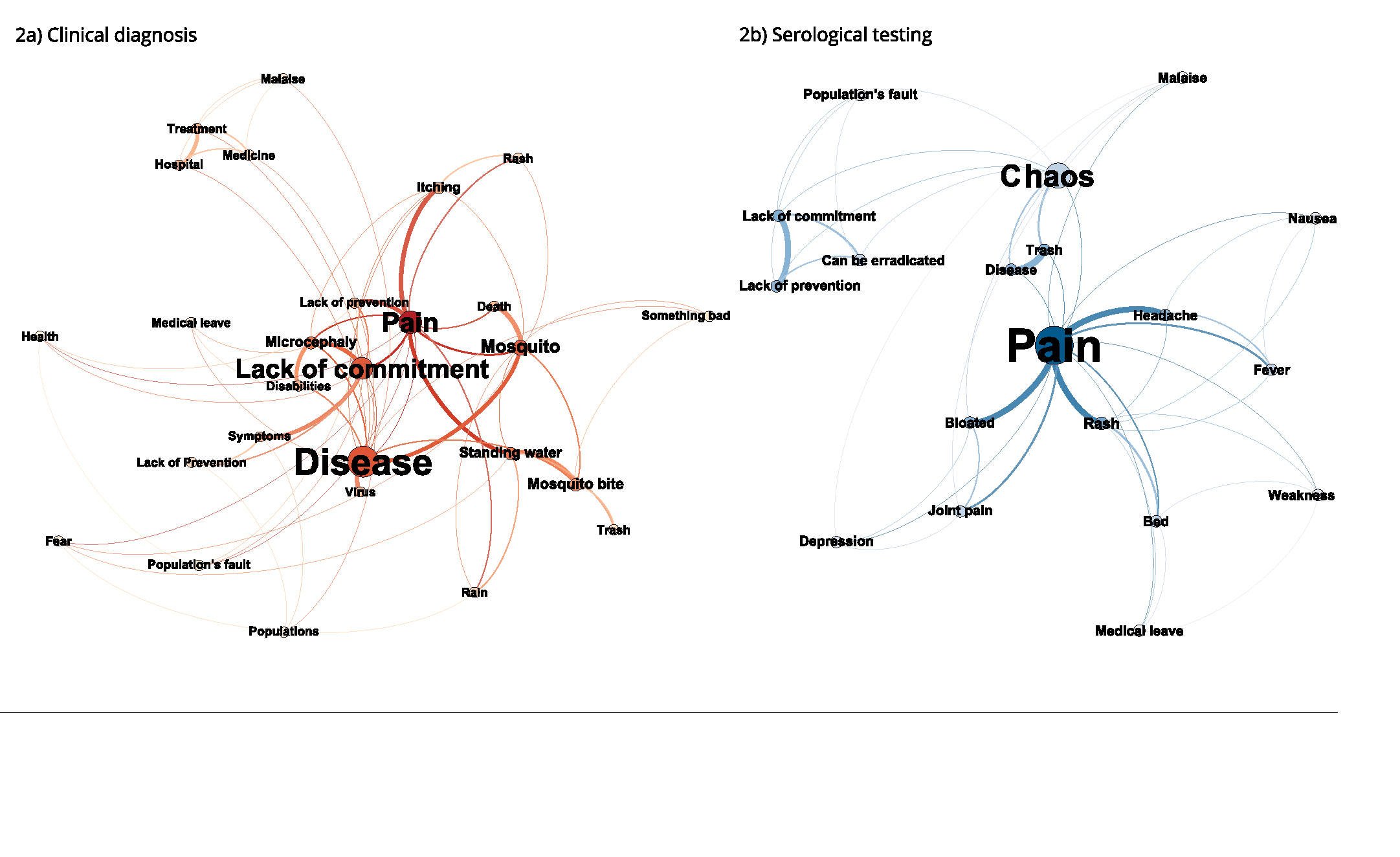Abstract:
Despite having been broadly advertised by the mass media, many negative consequences of the Zika virus have been less significant than originally predicted. It is likely that after a few months from the epidemic’s onset, personal experience with the virus has altered the person’s way to deal with the disease. This study explores the relation between exposure to Zika virus and the social representation of the epidemic. More specifically, one analyzes if increased exposure to the risk of Zika infection changes the characteristics of the web of meanings surrounding the epidemic. Between August and November of 2016, 150 interviews were conducted in the municipality of Governador Valadares, Minas Gerais State, Brazil. Based on the Free Words Association Technique, data on evocations related to the Zika virus were modeled by social network analysis, allowing the characterization of the web of meanings by level of exposure to the risk of Zika infection. The analysis performed here suggests that those never infected by any disease transmitted by the Aedes aegypti mosquito have a lesser representation, incorporating information from the media through lay thinking. In contrast to those with low levels of exposure, the social representation of people infected by Zika is associated with meanings related to the most common symptoms, such as pain, rash, and itching. Personal experience seems to shape the social representation of the disease, increasing the focus on its proximate consequences. Public campaigns designed to foster protective behavior should take into consideration the heterogeneity in the representations of this epidemic to improve adherence to preventive behavior.
Keywords:
Zika Virus; Risk-Taking; Social Support

 Thumbnail
Thumbnail
 Thumbnail
Thumbnail
 Source: author’s elaboration based on primary survey data (Research project: Migration, Vulnerability, and Environmental Changes in the Doce River Valley, 2013-2016).
Source: author’s elaboration based on primary survey data (Research project: Migration, Vulnerability, and Environmental Changes in the Doce River Valley, 2013-2016).
 Source: author’s elaboration based on primary survey data (Research project: Migration, Vulnerability, and Environmental Changes in the Doce River Valley, 2013-2016).
Source: author’s elaboration based on primary survey data (Research project: Migration, Vulnerability, and Environmental Changes in the Doce River Valley, 2013-2016).